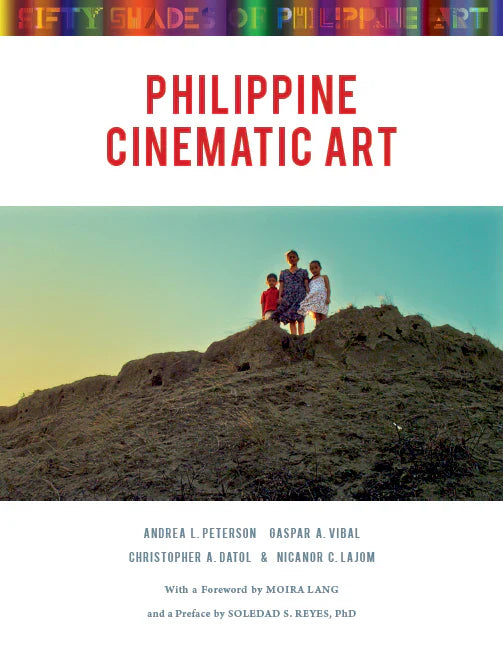Fifty Shades of Philippine Art: Philippine Cinematic Art
Fifty Shades of Philippine Art: Philippine Cinematic Art
Andrea L. Peterson, Gaspar A. Vibal, Christopher A. Datol, Nicanor C. Lajom
Couldn't load pickup availability
Share
Cinema is considered an artistic medium, but is it an art? During cinema’s bourgeoning decades, Marxist critics argued that cinema cannot be art because it is first and foremost a commercial product. In their influential book, Dialectic of Enlightenment, Theodor Adorno and Max Horkheimer depicted cinema as an instrument of capitalist control that withered “imagination and spontaneity.”
Yet great art often seeks to be architectonic, to embrace other arts. It is capacious; it crosses artistic boundaries; it engages mind, imagination, and heart; and it rewards multiple encounters. All this can be said of great cinema.
Philippine Cinematic Art examines how movies have mediated wondrously between high and low culture by providing profound narratives that resonate with a wider and more diverse audience. In such encounters, its invisible spectators experience what the film critic David Thomson calls the “stealthy rapture” of cinema with its capacity to engage both heart and intellect and move audiences to a deeper appreciation of the human condition and toward a refinement of their sense of beauty.
Published in 2020 by Vibal Foundation, Inc.
96 pages


